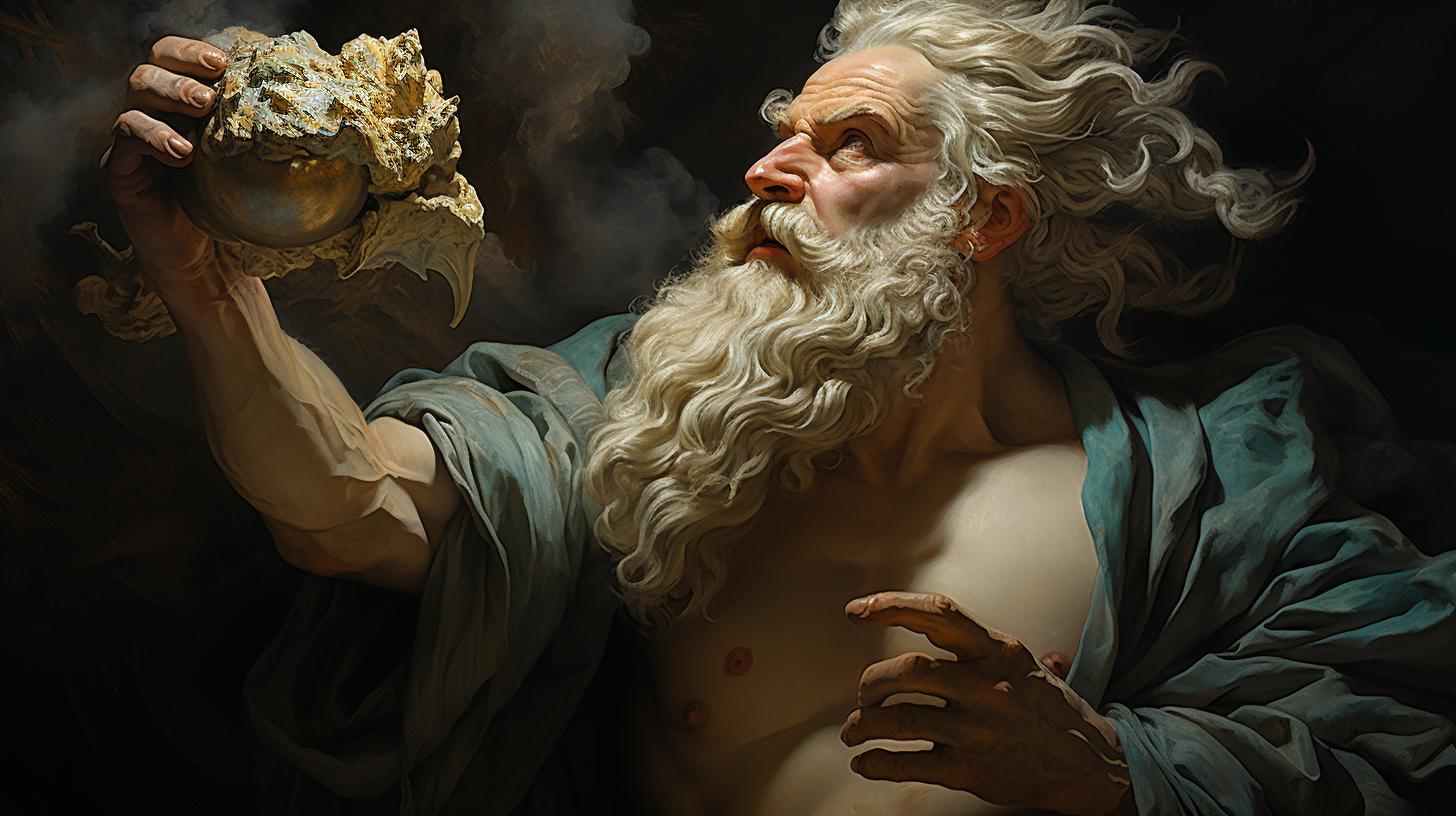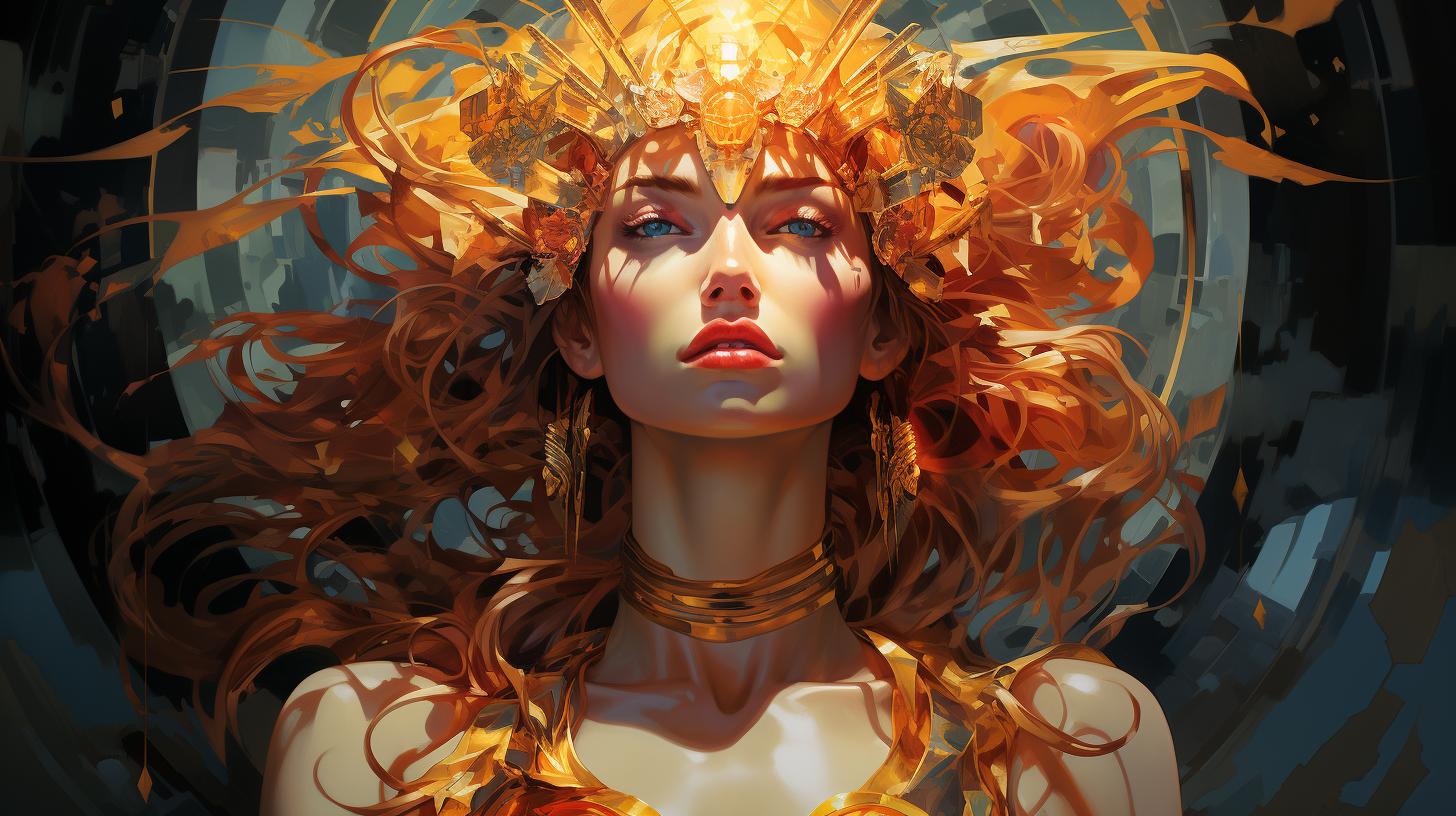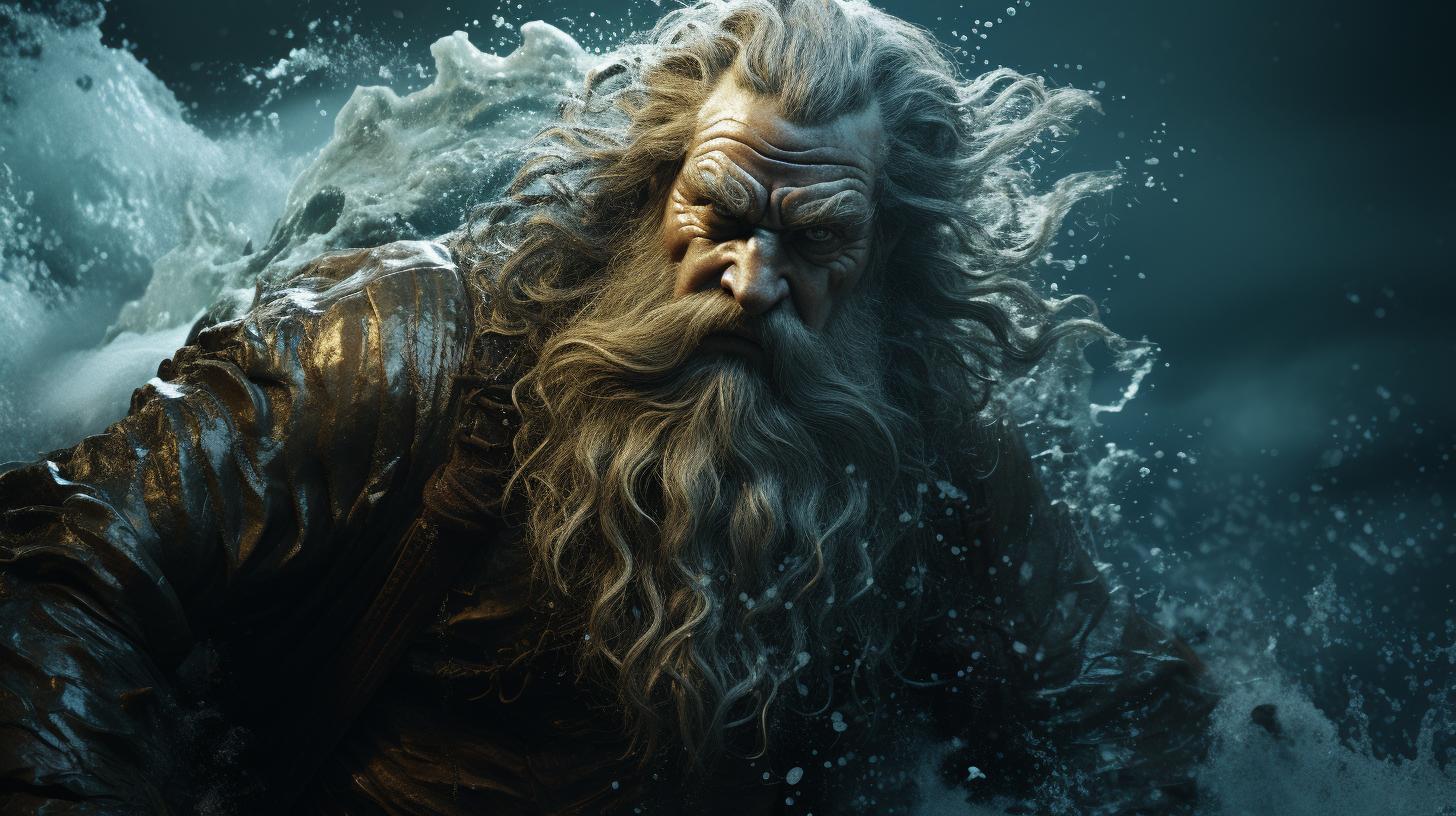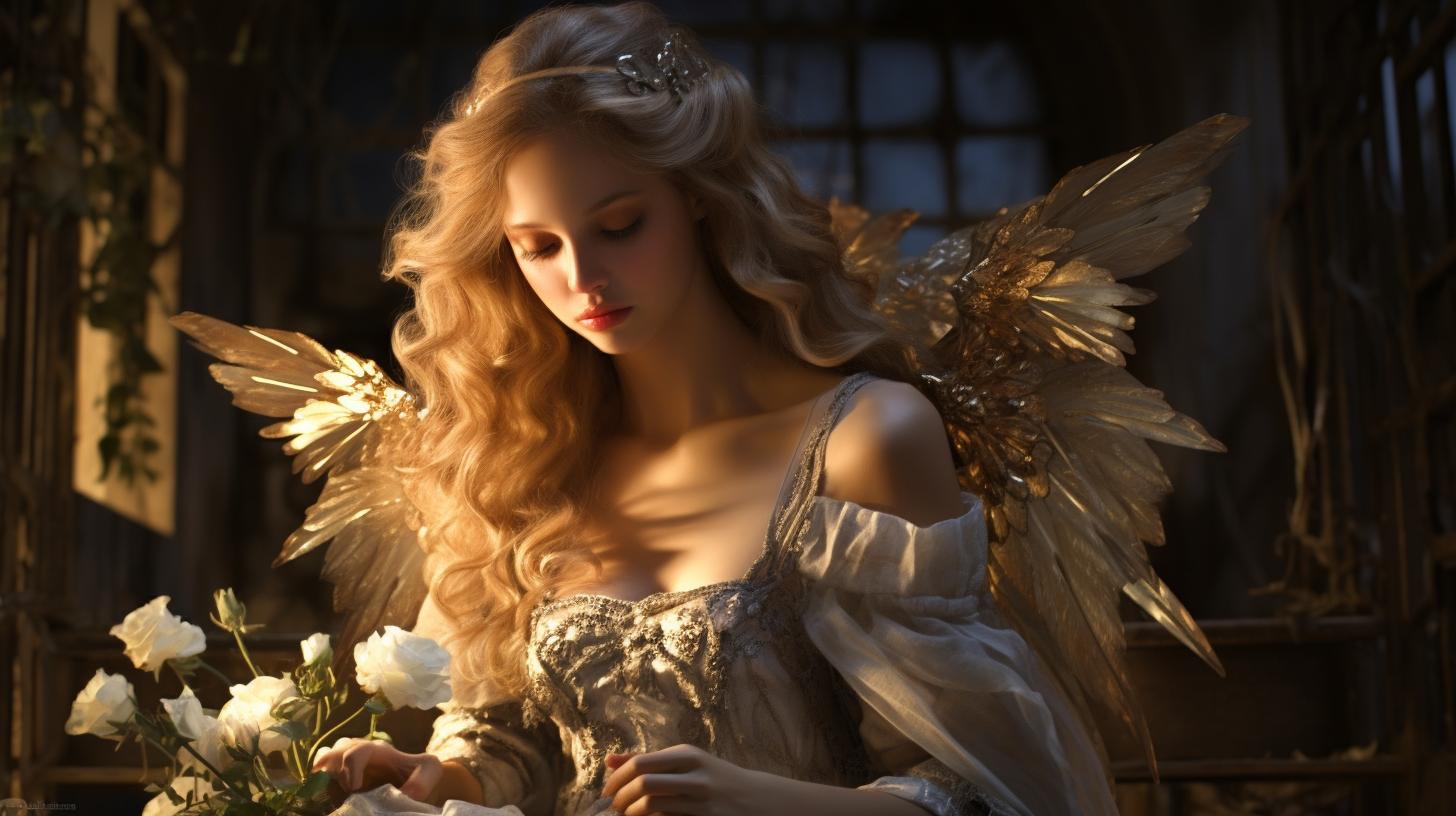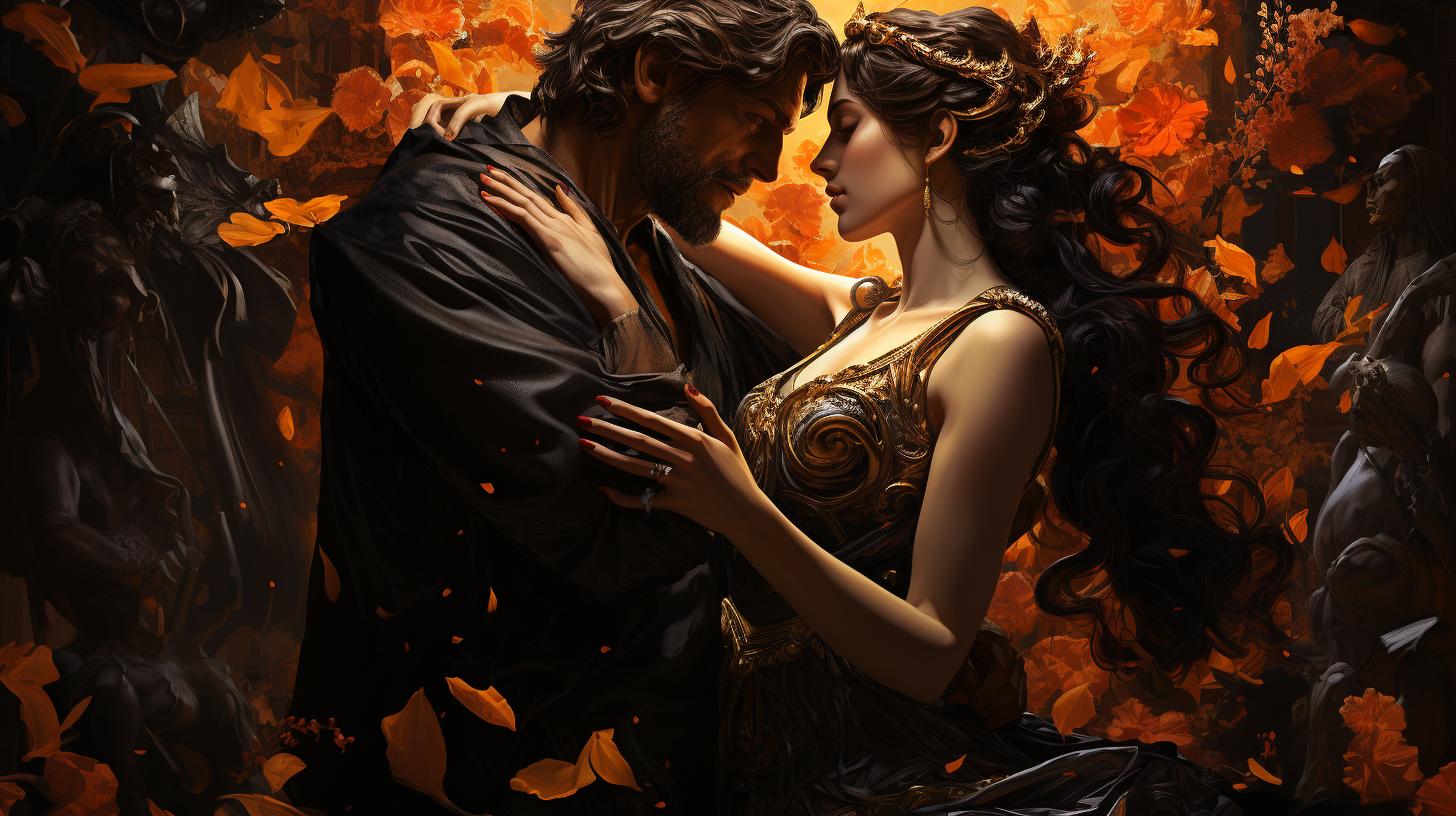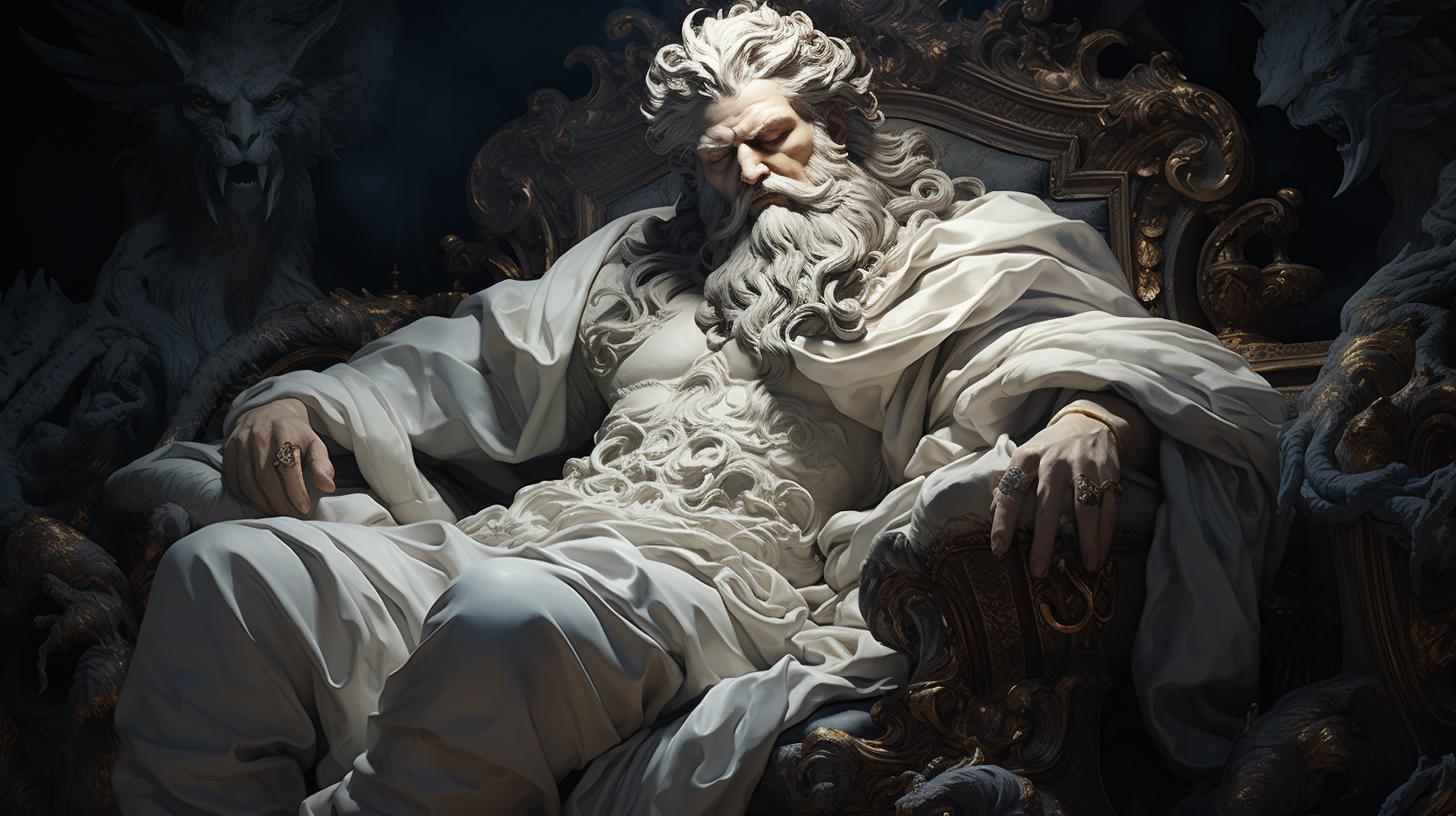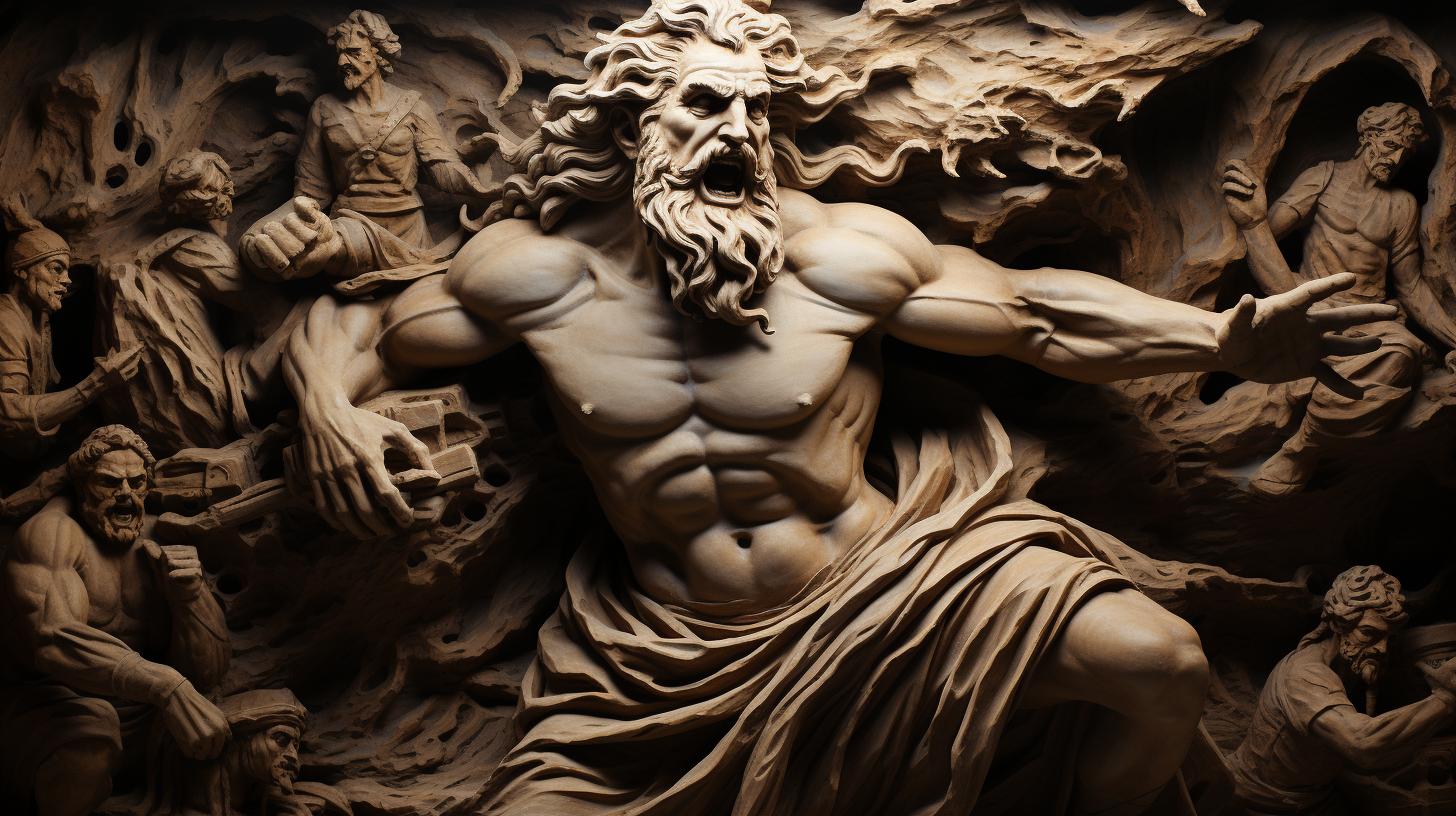Greek God Triton: Son of Poseidon, the Mighty Sea Deity
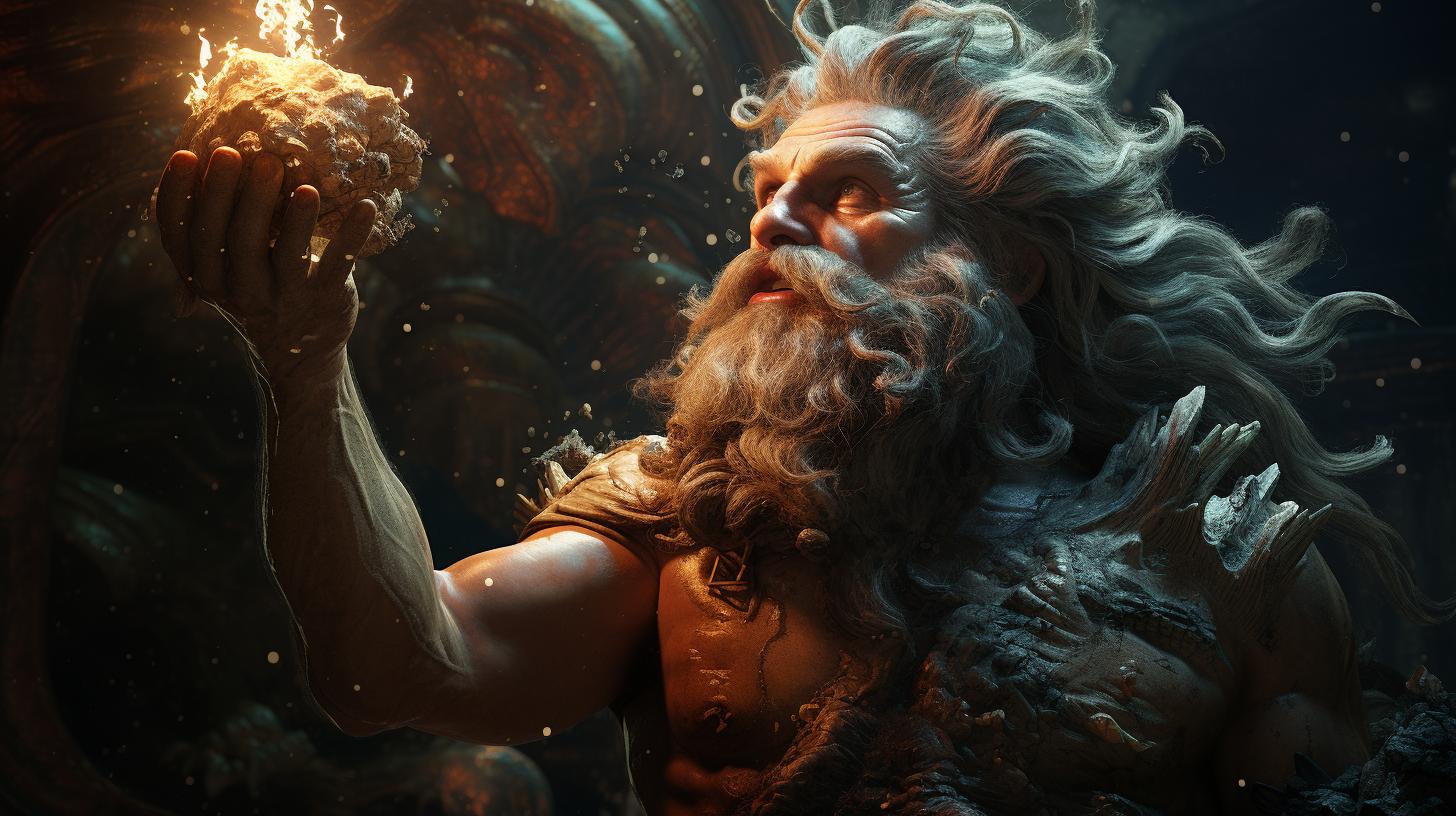
Greek God Triton, the son of Poseidon, holds a significant role in Greek mythology. He dwells in a golden palace beneath the sea and possesses a fish-like lower body.
Triton is revered as the deity of Tritons, half-human, half-fish creatures. He wields a conch shell as a trumpet to control the seas. As Poseidon’s messenger and herald, Triton’s exploits and associations with other mythical figures are explored in this article.
His family ties, depictions in Greek art, and involvement in ancient stories provide insight into his enduring legacy.
Greek God Triton: Son of Poseidon
The Greek god Triton, son of mighty Poseidon, holds a significant place in Greek mythology. This section delves into the mythology of Triton, exploring his origin, powers, and role in the pantheon.
Mythology of Triton
In Greek mythology, Triton is the offspring of the sea god Poseidon and the sea goddess Amphitrite. He is known as the deity of Tritons, mythological creatures that are half-human and half-fish.
Triton himself is depicted as a hybrid being, having the upper body of a man and the lower body of a fish.
Triton’s Appearance and Abilities
Triton’s distinctive appearance as a merman with a conch shell in hand sets him apart from other deities. He often uses this shell as a trumpet to calm or raise the waves of the sea.
While some artistic representations show him as a sea centaur with a horse body, his typical portrayal is that of a powerful aquatic being.
In terms of abilities, Triton possesses command over the ocean and possesses the power to manipulate and control the waves.
As the son of Poseidon, he inherits a portion of his father’s authority and serves as an important envoy and herald for the sea god.
Triton as the Messenger of Poseidon
In Greek mythology, Triton is regarded as the messenger of Poseidon. He acts as a herald, delivering messages and announcements on behalf of his powerful father.
Triton’s close association with Poseidon showcases his important role in communication and representation within the realm of the sea.
As the son of Poseidon and a prominent deity himself, Triton’s presence and influence in Greek mythology are undeniable.
His unique appearance, abilities, and role as Poseidon’s messenger make him a captivating figure deserving of exploration and admiration.
The Family and Relationships of Triton
In addition to his role as a powerful sea deity, Triton is intricately connected to his family and maintains relationships with various mythological figures. Exploring Triton’s family ties provides further insight into his divine lineage and significance in Greek mythology.
Triton’s Parents: Poseidon and Amphitrite
Triton, as the son of Poseidon, inherits his father’s dominion over the seas. Poseidon, the mighty god of the sea, and Amphitrite, the sea goddess, give birth to Triton, granting him his unique half-human, half-fish appearance.
As the offspring of a prominent divine couple, Triton possesses immense power and influence in the marine realm.
Triton’s Siblings: Nereus, Nereids, and Others
Within the pantheon of Greek gods, Triton has several notable siblings. The most prominent among them is Nereus, the wise and prophetic old man of the sea. Nereus is often depicted as the father of the Nereids, a group of fifty sea nymphs, each possessing their own individual characteristics and roles in the maritime world.
Triton’s kinship with Nereus and the Nereids further solidifies his connection to the intricacies of the sea realm.
Triton’s Marriage and Offspring
Triton’s influence extends beyond his immediate family, as he also enters into his own marital union and becomes a parent. According to mythological accounts, Triton marries a nymph from the region of Tritonis in ancient Libya.
Together, they bear a daughter named Palas. Triton’s familial relationships reflect his multi-faceted identity as both a divine being and progenitor, further emphasizing his significance within the pantheon of Greek gods.
Triton in Ancient Greek Art and Literature
The depiction of Triton in Greek art and literature offers a fascinating insight into the ancient perceptions of this mighty sea deity. Artists and writers of the time sought to capture Triton’s unique appearance and convey his significance in the realm of Greek mythology.
Depictions of Triton in Greek Art
Greek artists portrayed Triton in various forms, showcasing his hybrid nature as a half-human, half-fish creature. In sculptures and paintings, Triton is often depicted with a muscular human upper body and the lower body of a fish, emphasizing his close association with the sea.
His powerful figure and distinctive appearance made him instantly recognizable in ancient art.
One common artistic representation of Triton is him holding a conch shell, which he used as a trumpet to control the waves of the sea. This iconic attribute became a recurring motif in Greek artwork, symbolizing Triton’s connection to the sea’s immense power.
Artists also portrayed Triton engaging in fierce battles alongside other mythical beings, such as Heracles and Nereus, further highlighting his significance in Greek mythology.
Triton in Greek Mythological Texts
Greek literature is replete with mentions of Triton and his legendary exploits. In epic poems and mythical tales, Triton often appears as the messenger or herald of Poseidon, delivering important messages and commands to both mortals and gods.
His role as the intermediary between the sea deity and the rest of the divine realm reinforces his significance in Greek mythology.
One notable account featuring Triton is his involvement in the Argonauts’ heroic journey. According to ancient texts, Triton aided the Argonauts, a group of mythological heroes, in their quest for the Golden Fleece.
His divine assistance and knowledge of the sea played a crucial role in their successful navigation through treacherous waters and encountering mythical creatures.
Another captivating mention of Triton is in the Eneida by Virgil, where he slays Misenus, the son of Aeolus, after daring to challenge the gods. This portrayal showcases Triton’s power and authority, as he defends the divine order and punishes those who defy it.
Throughout Greek mythological literature, Triton’s name resounds, amplifying the tales of his valor, assistance, and unwavering loyalty to Poseidon. His presence in these ancient texts reaffirms his enduring legacy as a revered figure in Greek mythology.
Mythological Associations and Stories Involving Triton
Exploring the mythical connections and tales surrounding Triton unveils his involvement in various significant events and encounters. Let us delve into some of these captivating stories that highlight the role of Triton, the son of Poseidon.
Triton in the Argonauts’ Journey
During the famous voyage of the Argonauts in search of the Golden Fleece, Triton played a crucial part in aiding and guiding them through treacherous waters.
As the trusted messenger of his father Poseidon, Triton utilized his trumpet-like conch shell to protect the Argonauts from destructive sea currents and advise them on their perilous journey.
Triton’s Encounter with Misenus
In one notable tale, Triton clashed with Misenus, the son of Aeolus, who dared to challenge the gods.
Misenus, a skilled trumpeter, foolishly believed he could surpass Triton’s mastery of the sea, resulting in a deadly confrontation. Triton emerged victorious, silencing Misenus forever with the sound of his own trumpet, as a cautionary reminder of the consequences of hubris.
Triton’s Role in the Trojan War
During the epic Trojan War, Triton played a significant but lesser-known role. As Poseidon’s trusted herald, Triton conveyed important messages and decrees from the sea god to the mortal warriors.
His presence was often regarded as a foreboding sign of Poseidon’s impending intervention. Triton’s involvement added a divine dimension to the already legendary conflict, shaping the outcome of many decisive moments.
These tales offer a glimpse into Triton’s mythological associations and highlight his involvement in pivotal events, reinforcing his status as a revered and integral figure within Greek mythology.
Triton’s Legacy and Cultural Significance
Triton in Greco-Roman Religion and Cults
The mythological figure of Triton holds immense importance within the realm of Greco-Roman religion.
Revered as the divine messenger and herald of Poseidon, Triton had a prominent role in religious practices and cults dedicated to the worship of the sea god. Temples and sanctuaries were built in Triton’s honor, where devotees sought his blessings for safe voyages, abundant harvests, and protection from the perils of the sea.
Triton’s association with the sea and his ability to control and calm its waves established him as a symbol of power and authority over maritime affairs. Sailors and fishermen frequently invoked Triton’s name, offering prayers and sacrifices to secure his favor and safeguard themselves from the unpredictable forces of the ocean.
The continued veneration of Triton in Greco-Roman religion signified his enduring status as a revered deity, deeply embedded in the cultural fabric of ancient Mediterranean societies.
Triton’s Influence in Ancient Greek Society
The influence of Triton extended beyond the realms of religion and mythology, permeating various aspects of ancient Greek society.
Greek art and literature vividly depicted Triton as a distinct and recognizable figure, often shown alongside other sea deities and mythical creatures. His representation in sculptures, paintings, and pottery showcased his association with the power and vastness of the ocean, conveying the significance of maritime activities in Greek life.
Triton’s appearances in ancient Greek literature, such as the works of Homer and Virgil, further solidify his cultural significance. His involvement in epic tales, including his aid to the argonauts and his encounter with Misenus, added depth and complexity to the narratives and emphasized Triton’s role as a pivotal character in Greek myths.
Furthermore, Triton’s depiction as a half-human, half-fish creature established a connection between the terrestrial and aquatic worlds, underscoring the interplay between land and sea in ancient Greek society. This imagery resonated with the seafaring lifestyle of the Greeks, who relied heavily on maritime trade, exploration, and naval power.
In conclusion, Triton’s legacy and cultural significance in ancient Greece cannot be understated. As a revered deity in Greco-Roman religion, he was worshipped and honored in religious ceremonies and cults dedicated to Poseidon. His portrayal in art and literature, as well as his influence on Greek society, highlighted the profound impact of the sea and maritime activities on the lives of the ancient Greeks.
Triton continues to hold a place of reverence and fascination, symbolizing the untamed power and majestic allure of the ocean.
- Temples and sanctuaries dedicated to Triton existed in ancient Greece
- Triton was invoked by sailors and fishermen for protection and blessings
- Artistic representations of Triton emphasized his connection to the sea
- Triton’s appearances in literature added depth to epic tales
- Triton’s portrayal as a half-human, half-fish creature resonated with the seafaring lifestyle of the Greeks
- His legacy showcases the importance of the sea in Greek culture and society











